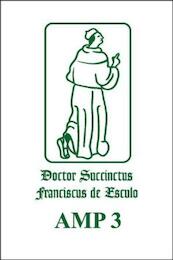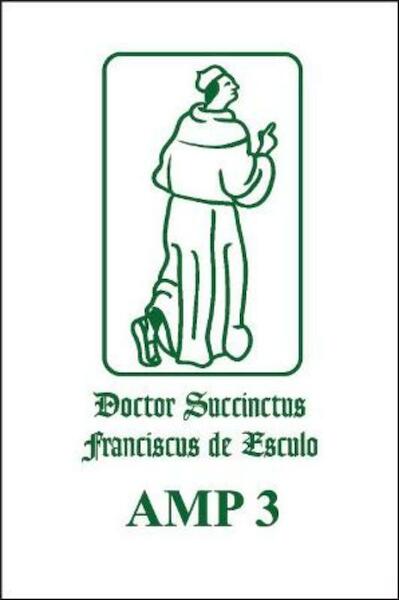| Prijs | € 40,00 |
Tijdelijk niet beschikbaar
Hardback | December 2011 |
Beoordeel dit boek als eerste!Beschrijving
Specificaties
- Uitgever
- Leuven University Press
- ISBN
- 9789058678942
- Bindwijze
- Hardback
- Publicatiedatum
- December 2011
- Categorie
- Wetenschappelijk
- Taal
- Meerdere talen
- Aantal Pagina's
- 450
Beschrijving
In the questions contained in this volume, Francis of Marchia explores subjects that earned him his fame in the Middle Ages and in the history of ideas: physics and philosophical psychology. He confronts the key issues in celestial physics, concluding with his well-known proofs for terrestrial and celestial beings having the same type of matter (q. 32). Marchia's discussion of how elemental qualities persist in mixtures (qq. 33-36) leads to a spirited and unique defense of a mind-body dualism: not even the sensory faculties are coextensive with the body (q. 37). Moreover, each living being has two forms: the soul and the form of the body (q. 38). Marchia rejects the Averroistic doctrine of the unicity of the intellect (qq. 39-40), as well as acts of understanding being entirely the result of external stimuli (q. 41). Those positions in turn inform his investigation of the mechanics of thinking and willing, and his establishment of the will's priority over the intellect (qq. 42-47). Finally, Marchia balances human free willing with God's absolute power and cooperation in all matters (qq. 48-49).
Throughout these questions, Marchia shows his originality and sharp intellect. Although at times his solutions look similar to those of John Duns Scotus, they are in fact very different, reflecting Marchia's awareness of the problems and limitations involved in not only Scotus' views, but also those of Aristotle and Averroes, Thomas Aquinas and Henry of Ghent, among many others.
Schrijf een recensie
Specificaties
- Uitgever
- Leuven University Press
- ISBN
- 9789058678942
- Bindwijze
- Hardback
- Publicatiedatum
- December 2011
- Categorie
- Wetenschappelijk
- Taal
- Meerdere talen
- Aantal Pagina's
- 450











